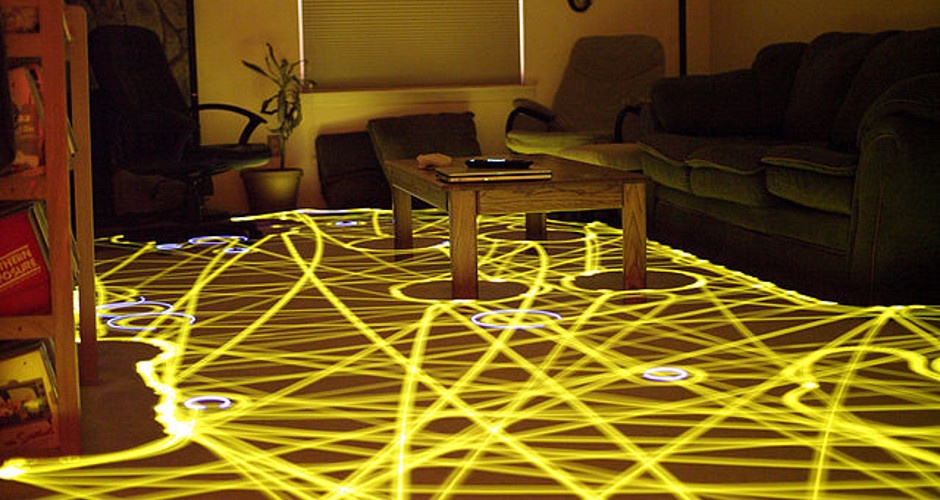— Published with Permission of LibertyNation.com —
[Note: Reuters issued a correction to their original article stating that they have changed their “paragraph 6 to read ‘share maps for free with customer consent’ instead of ‘sell maps.'” While this may change the selling aspect, it doesn’t change the privacy aspect.]
You may own a Roomba – a highly convenient floor-sweeping robot – but what you probably don’t know is that your Roomba is quite the little spy.
It’s been mapping the inside of your home for years, and now the manufacturers plan to sell that data – your data about the inside of your home – for profit.
While this may sound like some overdramatic conspiracy theory, the truth is that it’s all too real. Let’s break down what kind of data is collected by a Roomba:
- Floor plan of your home
- The general size and shape of everything on your floor, which means a general idea of where your furniture is and what it is
- What areas get the dirtiest, which means knowledge of your in-home traffic patterns
- How often you use it, which means an idea of how often/when you’re home since most people use Roomba at night or when they aren’t home
If you’re feeling a bit uneasy about the idea that what you do in the privacy of your home is being sold, then you’re behind the curve, because it’s been going on for some time in the form of the Internet of Things, or IoT. As Reuters points out, iRobot, maker of the Roomba, is pretty excited about how it can leverage your data.
“There’s an entire ecosystem of things and services that the smart home can deliver once you have a rich map of the home that the user has allowed to be shared,” said [iRobot CEO Colin] Angle.
[…]
Angle told Reuters that iRobot, which made Roomba compatible with Amazon’s Alexa voice assistant in March, could reach a deal to sell its maps to one or more of the Big Three in the next couple of years.
Now that Roomba is ‘compatible’ with Amazon’s Alexa, things are truly creepy. Let’s take a look at exactly how creepy.
If a company like Amazon, for example, wanted to improve its Echo smart speaker, the Roomba’s mapping info could certainly help out. Spatial mapping could improve audio performance by taking advantage of the room’s acoustics. Do you have a large room that’s practically empty? Targeted furniture ads might be quite effective. The laser and camera sensors would paint a nice portrait for lighting needs that would factor into smart lights that adjust in real time. Smart AC units could better control airflow. And additional sensors added in the future would gather even more data from this live-in double agent.
Little by little, people give up pieces of their privacy without a second thought. A few might complain about the abstract concept of lost privacy, but they aren’t willing to change their lifestyle and give up their convenient little comforts. Humanity, by and large, is lazy. If the choice is to go without a comfort or trade some privacy to keep it, they’ll take the convenient option – especially if it serves as a status symbol.
Humanity also seeks attention – just look at social media’s popularity – as a result, people are all too willing to put themselves and their information out there; it doesn’t matter that the info is being sold or even leveraged against them. As long as they’re getting the attention they need, it’s all okay.
The obvious problem with that is that one person’s choice to ignore privacy issues hurts everyone else. The constant draw of smart devices draws the surveillance noose ever tighter for all of us. A liberty-minded person might argue that it’s each person’s decision how much privacy to give up, and it’s not for another person to decide. The interesting part of that idea is that it’s true; each of us should get to decide how much of our own privacy we’re willing to throw away.
The flip side of that, however, is that according to that same liberty-minded person, one person’s rights stop where another’s begins. As the populace demands more and more convenience, the rest of us are besieged with more and more intrusions on our privacy. By default, those who are all too willing to trade their privacy away for cool gadgets assist in the infringement of others’ rights. It’s no wonder that some privacy-conscious folks resent those who proudly possess the latest trend in convenience, or who are willing to do anything to get the attention they crave. Considering that IoT devices have been and continue to be used in bot attacks against infrastructure, the perceived need for more tech only fosters vulnerability on an even greater scale.
On some level, technology has made our lives easier; no one wants to go back to scrubbing clothes by hand. Unfortunately, tech has made our lives far worse as well. Do we need light bulbs that turn on and off when we enter a room if those bulbs are reporting where we are in our home at any given time? Have we really gotten to the point where we must have a robot that sweeps our floors for us? Is it necessary to have voice-activated televisions that listen to our conversations?
The concept of privacy in our own homes is sacrosanct. If manufacturers like iRobot have their way, however, not even your private space is truly private.



